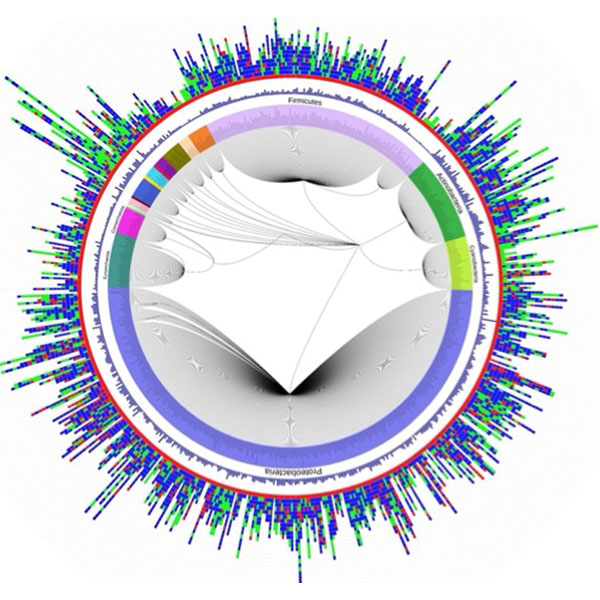|
|
|
|
|
|
 |
|
To the Skies and Beyond
UNT continues to rise as a major national research university. In fiscal year 2022, UNT increased its total research expenditures by more than $10 million from the previous year, was reaffirmed as a Tier One research university and joined national intiatives aimed at increasing opportunity for those historically underserved by higher education. Faculty across disciplines have made discoveries in everything from nanotechnology to Advanced Air Mobility technologies, earned top awards in their fields, and secured research funding from major national agencies including a collection of grants across disciplines from NASA. In the latest edition of the UNT Research magazine, read more about UNT's research funded by the nation's premiere space agency in the "To The Skies and Beyond" cover story and read other stories about how UNT faculty, students and alumni are making advances in their fields.
|
|
|
|
|
|
|
|
 UNT Welcomes New Leaders UNT Welcomes New Leaders
UNT has named new leadership. Longtime UNT faculty leader Audhesh Paswan is now dean of UNT at Frisco's New College. With a student-centered curriculum and forward-thinking faculty tuned in to current and future workforce trends, UNT at Frisco is evolving into a hub for knowledge and innovation in the North Texas region that bridges the gaps between the university and the public and private sectors. Then starting July 1, Albert Bimper will be dean of the College of Liberal Arts and Social Sciences, where he will oversee UNT's largest college with more than 22 academic departments and programs, including anthropology, geography and the environment, media arts and political science.
|
|
|
|
|
|
| Sustainable Food Production |
Researchers in UNT's Advanced Environmental Research Institute and College of Engineering are exploring how the desalination of brackish water could bring more sustainability to food production. The three-year project, backed by a $1 million grant from a joint funding program of the National Science Foundation and U.S. Department of Agriculture, is examining how brackish groundwater desalination costs could be offset by using its byproducts — desalination concentrate or brine — for profitable food production. The work combines the expertise of faculty members Miguel Acevedo and Xinrong Li in engineering and Edward Mager in biological sciences along with research coordinator Breana Smithers.
|
|
|
|
|
|
|
| Day of Data Science |
|
The College of Information, UNT Data Science Organization and UNT Career Center are partnering to offer students, faculty and industry experts the opportunity to share ideas, research and expertise in the field of data science in the Day of Data Science 9 a.m.-3 p.m. March 22 at the Gateway Center on the UNT campus in Denton. Check the event page to see the full schedule and to register.
|
|
|
|
|
|
|
| Serving Students with Autism |
|
UNT professors Miriam Boesch and Katsura Aoyama have earned a $1.24 million grant from the U.S. Department of Education to launch a program training special education teachers and speech-language pathologists to better serve students with autism spectrum disorder. Beginning this fall, UNT master's students in Project Communicate will have interdisciplinary coursework and conduct their supervised field work in Dallas-Fort Worth area schools, where they'll work directly with students with autism while receiving one-on-one training and mentorship from an onsite supervisor. The program also will fund opportunities for learning, networking and professional development outside the classroom. "It's important for students to be trained with people from other disciplines, because that's how they're going to be working," Boesch says.
|
|
|
|
|
|
 |
|
| Pursuing Alien Genes in Bacteria |
|
Rajeev Azad, associate professor of bioinformatics and a faculty member in UNT's BioDiscovery Institute, is developing and applying mathematical and computational methods to understand how organisms, specifically microbes, adapt to changing environments. His most recent research published in Microbial Genomics focused on uncovering foreign genes in bacterial genomes by leveraging information-rich genomic resources and developing a new protocol that is highly sensitive to foreign gene detection. Its application led to reconstruction of a network of bacterial gene flow published in Open Biology. He hopes this new method will encourage others to pursue research in this area since it offers a more efficient way to study Horizontal Gene Transfer quantification. "It is important to understand how bacteria evolve as they impact us and other life forms in many ways," Azad says. In an interview published on the Microbiology Society website, Azad shares more about his research.
|
|
|
|
|
|
|
| Research on Tap |
|
The Division of Research and Innovation is partnering with Denton-based Dan's Silverleaf to host the next installment of the Research on Tap discussion series. Grab a beverage from 6 to 7 p.m. Wednesday, March 22, and hear Catherine Ragland, associate professor of ethnomusicology, discuss her research on US-Mexico border music. If you're unable to attend, watch on Facebook Live, where you can also see videos of previous talks.
|
|
|
|
|
|
|